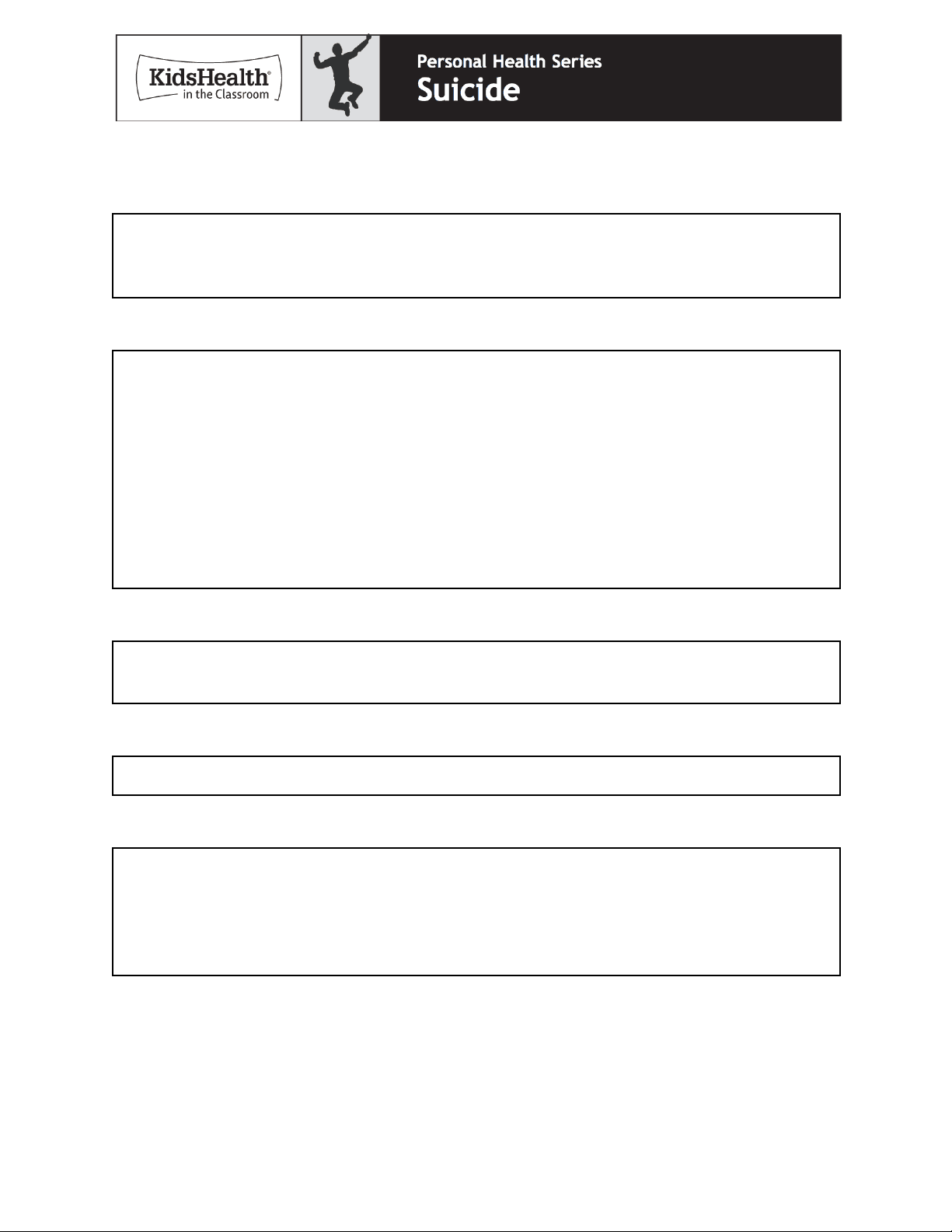


Study with the several resources on Docsity

Earn points by helping other students or get them with a premium plan


Prepare for your exams
Study with the several resources on Docsity

Earn points to download
Earn points by helping other students or get them with a premium plan
Community
Ask the community for help and clear up your study doubts
Discover the best universities in your country according to Docsity users
Free resources
Download our free guides on studying techniques, anxiety management strategies, and thesis advice from Docsity tutors
Discusses the statistics of teen suicide. Additionally, the prevention and signs for suicidal teens.
Typology: Cheat Sheet
1 / 1

This page cannot be seen from the preview
Don't miss anything!

Related documents
Partial preview of the text
Download What is teen suicide? and more Cheat Sheet Health sciences in PDF only on Docsity!
Creating a Safe Haven Who’s at risk: ● People with bipolar disorder ● Teens with alcohol and drug problems ● People with severe depression Warning signs: ● Talking about suicide or death ● Talking about “going away” ● Referring to things they “won’t be needing,” and giving away possessions ● Talking about feeling hopelessness or feeling guilty ● Pulling away from friends or family and losing the desire to go out ● Having no desire to take part in favorite things or activities ● Having trouble concentrating or thing clearly ● Experiencing changes in eating or sleeping habits ● Engaging in self-destructive behavior What to do if you suspect someone is considering suicide: ● Talk with them about it ● Get help-Tell a trusted adult Where to get help: Suicide crisis hotline 1-800-SUICIDE or 911 Other important facts: ● People are better able to deal with tough circumstances when they have at least one person who believes in them, wants the best for them, and whom they can confide in. ● If you’ve been close to someone who attempted or committed suicide, it can help to talk with a therapist or counselor.

